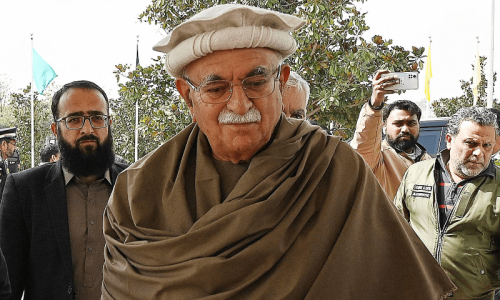ISLAMABAD: As the International Monetary Fund and the government currently discussing a plan to rescue Pakistan’s economy, Human Rights Watch (HRW) has proposed that the Fund should work with Islamabad to strengthen social protection and mitigate harm to the most vulnerable by advancing economic rights.
IMF should work with the government by broadening social protection systems and minimising reform measures that risk further harm to the most vulnerable people.
With poverty, inflation, and unemployment soaring, Pakistan is facing one of the worst economic crises in its history, jeopardising millions of people’s rights to health, food and an adequate standard of living, the HRW said in a statement issued on Monday.
Pakistan’s negotiations with the IMF, which continue through Feb 9, are meant to clear the IMF’s 9th review of its Extended Fund Facility paving way for the release of a $1.1bn tranche.
The inflow would ease the crippling shortage of foreign exchange and unlock access to other funding, including from multilateral and bilateral donors, said HRW, which is defending human rights worldwide.
Says conditions could exacerbate social and economic hardship
“Millions of Pakistanis have been pushed into poverty and denied their fundamental social and economic rights,” said Patricia Gossman, associate Asia director at Human Rights Watch.
“The IMF and the Pakistani government have a responsibility to address this crisis in a way that prioritises and protects low-income people.”
Pakistan’s social protection system, the Benazir Income Support Programme (BISP), is a government cash transfer programme that targets women living in extreme poverty.
While the programme is an important initiative assisting millions of households, it needs to be expanded significantly to protect large segments of the population from the added burden of potential additional IMF-mandated measures raising prices for necessities.
The conditions the IMF places on this loan could either exacerbate social and economic hardship or provide desperately needed relief to Pakistanis while addressing the crisis’s underlying causes.
Several adjustments proposed by the IMF as conditions for Pakistan to get the IMF loan and address the immediate economic crisis would have both a direct and indirect negative impact on low-income people.
Published in Dawn, February 8th, 2023















































Dear visitor, the comments section is undergoing an overhaul and will return soon.